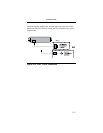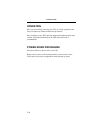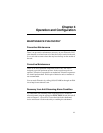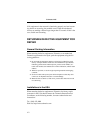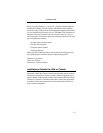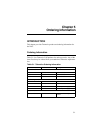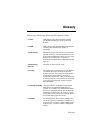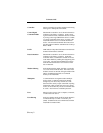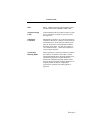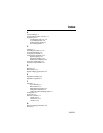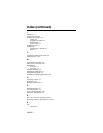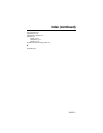
Telenetics 2185
Glossary-2
Controller Device responsible for polling terminals and routing
messages in a multipoint environment.
Control Signal
Contention Mode
Subchannels contend for use of the main channel to
send data to the CPU or controller. In the control
signal contention mode, subchannel devices contend
by raising control signal RTS if the device is a DTE,
or control signal DCD if the device is a DCE. The
2185 DSD returns CTS to a selected subchannel
device. The selected subchannel disconnects from
the main channel when the subchannel device drops
RTS or DCD.
DATA LED indicator lamp that illuminates when the main
channel inbound data is a SPACE.
Data Contention Subchannels contend for use of the main channel to
send data to the CPU or controller. In the data
contention mode, a subchannel contends for access
to the main channel by sending data (beginning with
a space bit). The selected subchannel disconnects
from the main channel after 16 consecutive mark
bits are detected.
Modem-Sharing In the modem-sharing mode, the CPU or controller
is at a site remote from the 2185. The 2185's main
channel connects to the CPU through a modem link
(DCE). Subchannel terminals are connected
directly to the 2185 DSD.
Multipoint A communications arrangement where multiple
devices share a common transmission channel,
though only one device may transmit at a time.
Such networks usually require some kind of polling
mechanism, which is under the control of a master
station, to ensure that only one device transmits data
at a time. Also known as a multidrop network.
Port Physical point of access into a computer, a network,
or other electronic device.
Port-Sharing In the port-sharing mode, the 2185's main channel is
connected directly to a CPU or controller port
(DTE). Subchannel devices communicate with the
2185 DSD via modem links.



